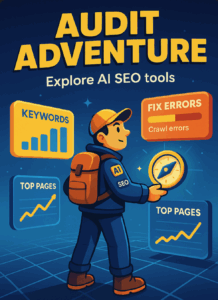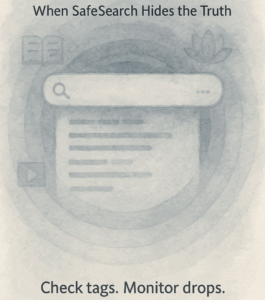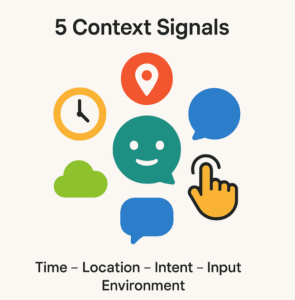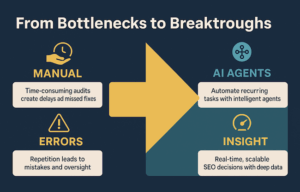
The SEO writing, or Search Engine Optimization, is a content strategy that aims to optimize your site for search engines such as Google. The goal is to make your pages more visible and attractive to users and indexing robots. In this article, we will explore the main SEO writing techniques to boost your organic ranking.
Table of Contents
ToggleImportance of SEO writing for organic ranking
Effective SEO writing can have a significant impact on the organic ranking of your site. Thus, it is necessary to understand that search engines are guided by complex algorithms that determine the relevance and quality of your content. Therefore, ensure the appropriate use of keywords, the structure of your content, and the quality of links for example.
The relevance of keywords in SEO writing
Keywords are the starting point of any SEO writing strategy. They represent the terms that your prospects will use to find your site on search engines. That’s why it’s crucial to integrate these keywords naturally and relevantly into your content.
- Thus, do not over-optimize your content by stuffing your text with keywords, this can be counterproductive and even penalized by search engines.
- Keywords should be integrated coherently and logically into the text.
- It is recommended to use variations and synonyms of your main keywords to diversify your content and avoid redundancy.
Structure of content optimized for SEO
Once you have defined your keywords, the next step is to structure your content so that it is easy to read and understand, for users… But also for search bots.
Hierarchy of content with H tags
The H1, H2, H3, etc., tags are essential elements of the structure of your content. They indeed help to hierarchize information and make your text more readable.
- The H1 tag is usually reserved for the title of your page or article. It should contain your main keyword.
- The H2 tags are used for subtitles and should include your main and secondary keywords.
- H3 tags are ideal for sub-sections and should focus on semantic keywords related to your topic.
In conclusion, by respecting these structure rules, you contribute to making your content more accessible and relevant for search engines, while making reading easier for your visitors.
Thus, the role of SEO writing is twofold: improving your organic ranking while offering quality content to your readers.
Links in SEO writing
Internal and external links are another crucial element of SEO writing. They not only serve to guide your readers to other relevant content, but also to reinforce the structure of your site and increase its authority in the eyes of search engines.
SEO Writing Techniques: Links and Image Optimization

In this second part of our guide on SEO writing, we are going to explore in more detail two crucial aspects of optimization for search engines: the use of links and image optimization. Ready to dive deeper into the world of SEO writing? Let’s go.
The importance of links in SEO writing
Links, whether internal or external, play a crucial role in optimizing your content for organic ranking. In addition, they contribute to the structure of your site and its credibility, while offering your readers additional relevant resources.
Internal links for better navigation
Internal links are links that point to other pages of your own site. They contribute to the navigation of your users, the hierarchy of your content, and the distribution of “link juice” across your site.
- It is recommended to create internal links in a natural and relevant way, always ensuring to provide value to your readers.
- The anchor of your link should be descriptive and contain, if possible, your target keywords.
- Avoid overloading your content with internal links. Aim for a balance that is beneficial both for your SEO and for the user experience.
External links for greater credibility
External links are links that point to other websites. They can enhance the credibility of your content and provide search engines with clues about the subject of your page.
- Ensure to only link to high-quality and relevant sites for your content.
- Use descriptive and SEO-optimized link anchors.
- Remember that the goal is always to provide value to your readers, so choose your external links carefully.
For more information on natural referencing, you can consult this complete guide provided by Moz, a reference in the field of SEO.
Image optimization for SEO
Images are not just there to make your content more attractive. When they are properly optimized, they can also contribute to your natural referencing.
Use of the alt tag to describe your images
The alt tag is a textual description of your image, used by search engines to understand the content of the image. It’s important to include your main keywords in the alt tag, but in a natural and relevant way.
For example, for an image showing a person writing a blog post, a good alt tag could be “writing a blog post for SEO”.
With these SEO writing techniques in mind, you are now ready to optimize your content for natural referencing. But that’s not all: in the third part of our guide, we will explore other important aspects of SEO writing.
If you have any questions or if you want to learn more about our services, feel free to contact us via our contact page.
Final tips for effective SEO writing
Having arrived at the last stage of our SEO writing guide, we will now cover additional tips for optimizing your content. We will address the structuring of your text, the use of transition words, and the avoidance of passive voice. Thus, you will have all the tools to make your SEO writing a real asset for your natural referencing.
Optimally structuring your text
The structure of your text is important for better understanding by search engines, but also by your readers. Here are a few points to keep in mind:
- Use relevant titles and subtitles to structure your content.
- Each section of your text should focus on a specific idea or a sub-theme of your topic.
- Short and concise paragraphs facilitate the reading and understanding of the content.
- Don’t forget to integrate your main and secondary keywords naturally into titles and subtitles.

Use of transition words
While transition words enhance the flow of your text and facilitate reading, they also create logical links between your sentences and paragraphs. For example, you can use words such as “in addition”, “however”, “furthermore”, “consequently” to improve the fluidity of your content.
Furthermore, there are lists of transition words that you can use.
Avoiding passive voice
Passive voice can make your text more difficult to read and understand. When possible, use active voice to make your content more direct and engaging. And this, regardless of what your readers want. Search engine algorithms penalize excessive use of passive voice.
For example, instead of saying “An SEO analysis was carried out by our agency”, you can say “Our SEO reference agency conducted an SEO analysis”.
By using these tips and techniques, you can create content that is optimized for search engines. Furthermore, it is also informative, engaging, and useful for your readers.
Conclusion
In conclusion, SEO writing is not just a matter of keywords and technical optimization. In addition, it’s about understanding what your readers – and search engines – are looking for and providing quality content that meets these needs.
By applying the advice and techniques shared in this guide, you can improve the visibility of your site in search results, attract qualified traffic, and convert your visitors into customers.

Eric Ibanez
News Writer & Founder Hack The SEO
An expert in SEO since the launch of his e-commerce dedicated SaaS in 2016, Eric quickly grasped the significance of optimization for search...
Suggested Articles




